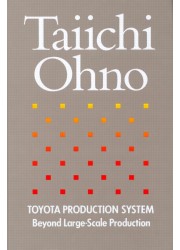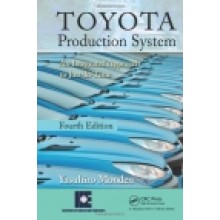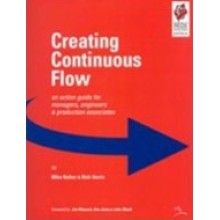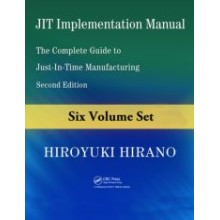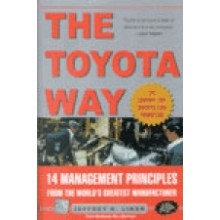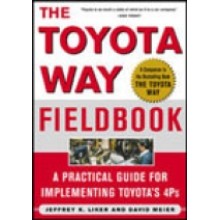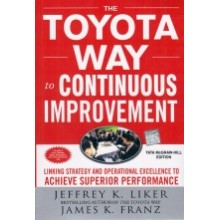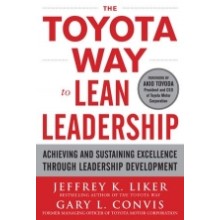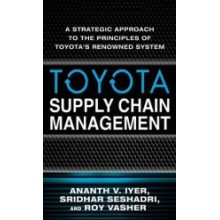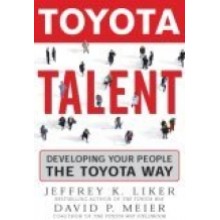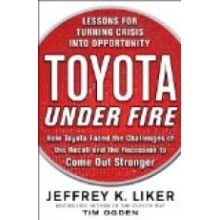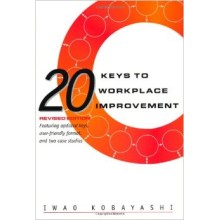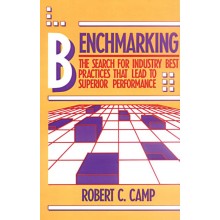Toyota Production System : Beyond Large-Scale Production
Quantity:
Add to Compare
In this classic text, Ohno shares information on the Toyota Production System you won't find anywhere else. Combining that information with rigorous analysis of the successes and failures of Toyota's attempts at lean production, Ohno's book provides striking insights into how the Toyota Production System can be adapted for other manufacturing organizations -- and how it can work for you. Most importantly, you will learn how to improve production efficiency through the relentless elimination of waste and how the elimination of waste is the key to increasing your bottom line.
Written as a historical and philosophical description of the rationale and purpose of just-in-time and lean manufacturing, Toyota Production System is a must-read for all forward-thinking managers, because it provides the foundational knowledge essential to any lean manufacturing initiatives.
Publisher's Foreword
Preface to the English Edition
A Comment on This Book
A Note on Japanese Names
Chapter 1 : Starting from Need
- The Oil Crisis Opened Our Eyes
- Slow Growth is Scary
- "Catch Up with America"
- Just-in-Time
- Using a Common-Sense Idea
- Give the Machine Intelligence
- The Power of Individual Skill and Teamwork
- Cost Reduction is the Goal
- The Illusion of Japanese Industry
- Establishing a Production Flow
- Production Leveling
- In the Beginning, There Was Need
- A Revolution in Consciousness is Indispensable
Chapter 2 : Evolution of the Toyota Production System
- Repeating Why Five Times
- Complete Analysis of Waste
- My Plant-First Principle
- Writing the Standard Work Sheet Yourself
- Teamwork is Everything
- The Skill of Passing the Baton
- An Idea from the U.S. Supermarket
- What is Kanban?
- Incorrect Use Causes Problems
- The Talent and Courage to Rethink What We Call Common Sense
- Establishing the Flow is the Basic Condition
- Use Your Authority to Encourage Them
- Mountains Should be Low and Valleys Should Be Shallow
- Challenge to Production Leveling
- Production Leveling and Market Diversification
- Kanban Accelerates Improvement
- Carrying Carts as Kanban
- The Elastic Nature of Kanban
Chapter 3 : Further Development
- An Autonomic Nervous System in the Business Organization
- Provide Necessary Information When Needed
- The Toyota-Style Information System
- Fine Adjustment
- Coping with Changes
- What is True Economy?
- Re-Examining the Wrongs of Waste
- Generate Excess Capacity
- The Significance of Understanding
- Utilizing the Full Work System
- Do Not Make a False Show
- Required Numbers Are All-Important
- The Tortoise and the Hare
- Take Good Care of Old Equipment
- Look Straight at the Reality
- 0.1 Worker is Still One Worker
- Management by Ninjutsu
- In an Art Form, Action is Required
- Advocating Profit-Making Industrial Engineering
- Surviving the Slow-Growth Economy
Chapter 4 : Genealogy of the Toyota Production System
- A Global World Around Us
- Two Extraordinary Characters
- Learning from the Unyielding Spirit
- Toyotaism with a Scientific and Rational Nature
- Provide Good Equipment Even if the Factory Is Simple
- Pursuit of a Japanese-Style Production Technique
- Making Products That Have Value
- A Chessplayers View
- In Search of Something Japanese
- Witnessing a Dialectic Evolution
Chapter 5 : The True Intention of the Ford System
- The Ford System and the Toyota System
- Small Lot Sizes and Quick Setup
- The Foresight of Henry Ford
- Standards Are Something to Set Up Yourself
- Prevention is Better than Healing
- Is There a Ford after Ford?
- Inverse Conception and Business Spirit
- Getting Away from Quantity and Speed
Chapter 6 : Surviving the Low-Growth Period
- The System Raised in the High-Growth Period
- Raising Productivity During Low Growth
- Learning from the Flexibility of Ancient People
Postscript to the Original Japanese Edition
Glossary of Major Terms
Editors Notes
About the Author
Index
Copyright © 2014 Engineering Standards Bureau. All Rights Reserved.
Developed By Zoom Into Web


